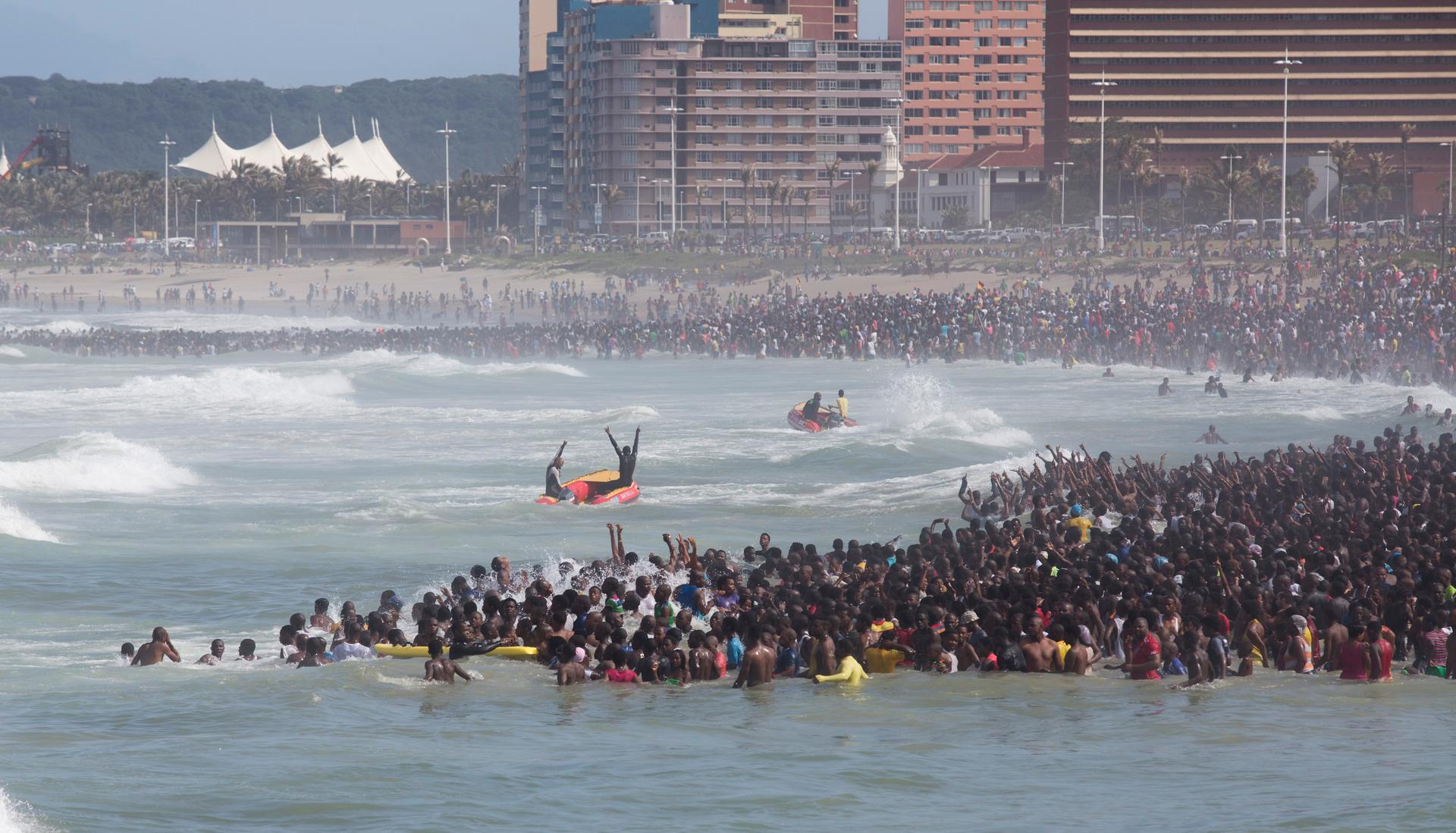South Africa starts 2016 with a big fight over racism
Thousands of people celebrate New Year's Day on a beach in Durban, South Africa, January 1, 2015.
JOHANNESBURG, South Africa — It’s a holiday tradition: every December, South Africans crowd beaches along Durban’s picturesque coast to ring in the New Year.
But this year, the joyful celebrations were followed with a national hangover, a result of racist remarks posted on social media about the mainly black beach-goers.
Nearly a week into 2016 and the outcry continues, with the governing African National Congress declaring it wants tougher legislation to jail those who make comments deemed “racial bigotry” or “glorifying" apartheid.
On Jan. 2, Penny Sparrow, who is white, wrote a Facebook post in which she called black people “monkeys” and accused them of making a mess of public beaches: “To allow them loose is inviting huge dirt and discomfort and troubles to others,” she wrote. “This lot of monkeys just don't want to even try.”
During the apartheid years, South African beaches were racially segregated with many of the best beaches reserved only for white people.
Today, “many African families save for months to get to the seaside on New Year's day,” said Neeshan Balton, director of the Ahmed Kathrada Foundation, set up by the anti-apartheid activist to fight racism. "We must recall the struggle to open our beaches to all during the 1980s."
More from GlobalPost: South Africa debates a taboo question: Was Mandela a sellout?
While Sparrow, a real estate agent and member of the opposition Democratic Alliance, has denied she is racist, her subsequent apologies and apparent defense of her comments have only intensified the criticism.
Both the ANC and DA have filed criminal charges against Sparrow, while the DA suspended her party membership and accused her of “infringing the dignity of all South Africans” and “dehumanizing black South Africans.”
The ANC called her comments “degrading and disrespectful," adding: “These kind of views and opinions do not belong in the democratic South Africa we are building.”
The South African Human Rights Commission has said it is investigating.
Similar remarks by white South Africans, about Durban's beaches, have also have drawn attention in the past few days.
In a separate case, South Africa’s Standard Bank suspended a prominent economist after remarks the bank said had “racist undertones.”
The economist, Chris Hart, had tweeted that, more than two decades after apartheid, "the victims are increasing along with a sense of entitlement and hatred towards minorities.” Hart later tweeted an apology, saying his comments were meant in the context of the country’s slow economic growth.
Also at issue is a DA member of parliament, Dianne Kohler Barnard, who was expelled from the party in October after sharing a Facebook post that suggested public services were better in South Africa under apartheid and praised P.W. Botha, an apartheid leader.
Kohler Barnard appealed her expulsion and was reinstated to the party last month. The ANC has also filed charges against her, as well as Hart.
More from GlobalPost: 20 years since apartheid: What's changed in South Africa, and what hasn't
Meanwhile the ANC parliamentary chief whip's office said that comments perpetuating racism and “glorifying” apartheid should be considered a serious human rights violation, and subject to tougher legislation including imprisonment.
“In the context of our painful past, racial bigotry and apartheid must be considered serious human rights violations,” a statement said. “Elsewhere glorification of Nazism and denial of Holocaust is a crime and perpetrators are tried and sentenced to a prison term.”
Sello Hatang, CEO of the Nelson Mandela Foundation, said that “it is clear that race continues to define us."
“South Africa has experienced an unhealthy barrage of racist incidents that have grabbed national headlines over the festive period,” he said. “It seems that such sentiments lurk deeply below the façade of our society, rearing its head with little provocation.”
